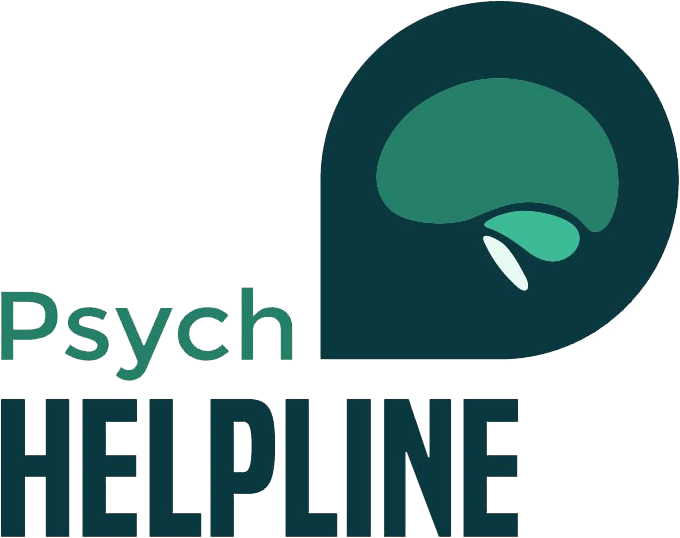Table of Contents
Substance abuse recovery is a tricky yet unavoidable subject. Addiction’s far-reaching consequences can be very obvious yet finding the solution to them requires professional assistance. Licensed practitioners such as therapists & substance abuse counselors can really make a change in a recovering addict’s life. A substance abuse counselor doesn’t only make the recovery phase easy. As a matter of fact, he/she can also ensure that their client stays on this path for a long time and doesn’t relapse.
A substance abuse counselor’s biggest responsibility is to map out a present and future plan for their clients. They analyze their client’s history with addiction and help them establish boundaries in their life. Furthermore, based on their previous experience in clinical settings, a counselor influences clients into adopting lifestyle changes and pursuing sobriety. Based on your needs & progress, a counselor can also refer you to a therapist later on. A counselor carries out individual or group sessions also based on your needs.
Here’s more on how one on one sessions with a substance abuse counselor can really change the trajectory of an addict’s life;
6 Goals On Every Dedicated Substance Abuse Counselor’s Checklist
1. The Dire Need For A Therapeutic Alliance
Individuals who wish to seek help regarding substance abuse and similar matters have some reservations of their own. It’s hard to relay a great deal of your past history and aspects related to substance abuse, especially to strangers. Thus, there’s a dire need to build a strong bond or alliance between the client and the counselor from the get-go. For obvious reasons, a single session cannot magically build that therapeutic alliance between both ends. It’s only going to develop gradually through each session. Once a client feels like his needs will be addressed in a dedicated manner without any hint of judgment, he/she might start enthusiastically pursuing the road to recovery. The question remains; how do substance abuse counselors really build a therapeutic alliance with the clients they cater to? During sessions, counselors proceed to be as attentive as one should be while their clients relay everything. Verbal and physical cues play a huge role during that. Substance abuse counselors also allow their clients or patients to be as vulnerable as they want. Giving them a chance to be vulnerable is actually brilliant because in this way the client can speak more on the reasons behind why they’re an addict. Here are some more reasons why building a therapeutic alliance helps in substance abuse recovery;
- Being empathetic during sessions towards a client helps them feel more comfortable. So, the bottom line is; the less on the edge your client feels, the keener he is to actually work on himself.
- Building a strong bond for the sake of recovery also builds the counselor’s image in a three-dimensional light. Consequently, their clients do view them as a person who’s their well-wisher, not someone who’s just being paid for a job. From then on, every piece of advice given by a counselor actually seems like it is for their client’s benefit.
- A therapeutic alliance builds the foundation of a professional yet more laid-back conversational style. It sets the basis for better understanding and communication between both ends. Furthermore, it also reduces any fear or concerns that the client has regarding private matters.
2. The Development Of A Goal Sheet
Addicts that willingly check into counseling sessions or therapy programs have some future goals preplanned. Thus recovering from an addiction ensures that nothing is standing between the completion of these personal goals. Some great examples of these goals would be;
- Reasons related to marital bliss and parenting problems
- Court-mandated counseling sessions for a clean slate
- Academics & Career related goals
- Health-related reasons
It’s among a substance abuse counselor’s biggest tasks to remind their clients about these goals from time to time. Giving timely reminders helps their clients in staying motivated. Whenever they’re tempted to stray away from the recovery phase, they’re reminded of the things that actually really matter to them. Counselors also offer as to how maintaining their soberness can help them attain future goals at a faster pace. A substance abuse counselor also helps addicts actualize that the power to change their life lies in their own hands.
3. Development Of Healthy Coping Mechanisms
People tend to pursue substance abuse to fill up empty holes inside their hearts. It’s an unhealthy coping mechanism that can temporarily numb the pain of a traumatic event, abuse, bad childhood, physical anomaly, a bad breakup, etc. Furthermore, this vicious cycle of self-destructive behavior continues until or unless an addict adopts some healthy coping mechanisms. A substance abuse counselor suggests various ways that can make their clients feel more stable in the absence of recreational drugs or alcohol. Apart from suggesting coping mechanisms, counselors lay down problematic behaviors that push clients towards consumption.
These coping mechanisms are either based on a client’s beloved passions/habits or are suggested by their counselor. So whenever the need to self-destruct arrives, a client can feel more stable by pursuing coping mechanisms that are actually healthy for them. It’s less hectic and more like a lifestyle change. Here are some examples of healthy coping mechanisms suggested by most substance abuse counselors;
- Meditation/Yoga
- Listening to favorite music/compositions
- Try an art form (poetry, painting, pottery, knitting, etc.)
- Jotting things down in a gratitude journal or diary whenever the need to consume alcohol or drugs arises
- Talking to a support group, friend, or close family member whenever you feel extremely over the edge
- Picking up a healthy athletic habit such as; marathon running, morning walk, attending Zumba or Pilate classes, working out in a gym/lifting weights, etc.
- Avoiding situations or people that force you to self destruct
- Replacing booze on the dinner table with some healthy juices or water whenever you feel like holding a glass out of usual habit
- Aiding another addict on the road to recovery by becoming a sponsor for them
- Try to be more mindful, calm, collected, and strategic while making daily decisions. Reevaluate your goals in the future before you consume any drugs or alcohol once again.
4. The Creation Of A Relapse Prevention Plan
According to a recent study, around 50-60 percent of ex-addicts tend to relapse at a certain stage in their life. Recovering from an addiction of a kind is a tricky process. Sometimes some individuals have the stamina to surpass some huge setbacks. On the contrary, depending upon the context, they might lose at the hands of a small setback. Perhaps a recent breakup or getting fired from an old position pushed them towards alcohol/drug consumption once again. So, apart from taking care of the present circumstances a substance abuse counselor also caters to the future.
During the counseling sessions, apart from helping you in your current recovery phase. Your counselor will suggest ways to maintain your recovery. It’s an overall compilation that can also be referred to as a relapse prevention plan. Substance abuse counselors based on a client’s history and the root cause behind addiction, suggest ways that can help them in maintaining stability later on in life. One can’t really tell when a client might relapse once again. It could be right after their last session with their substance abuse counselor or years later.
Yet, keeping account of a few principles and coping mechanisms can help wear off the temptation to do drugs once again. As stated earlier, each relapse plan varies for every different case. It consists of suggestions and lifestyle changes that an ex-addict can adopt. There’s a set of things every substance abuse counselor makes notes of before briefing their client on a relapse plan;
- First and foremost, a counselor might like to know whether or not their client has ever relapsed in the past. This piece of information comes very handy as it shows that their client might have some lack of resilience like most addicts.
- Another key piece of info is the time of relapse. If there have been a couple of relapses in the past, then one can make out a pattern. These relapses might’ve occurred at a particularly sensitive phase in a client’s life; recent life change etc. Based on these findings, a client can be counseled into managing those sensitive circumstances more healthily in the future. Thus he/she might not resort to substance abuse like before, consequently avoiding a relapse.
- Based on their client’s history, substance abuse counselors can create a list of warning signs. These warning signs can be based on how an ex-addict feels, thinks, or behaves before finally relapsing.
- During the creation of this emergency relapse plan, a counselor might ask the client to suggest a few people they can rely on. These names might be of their close relatives, friends, romantic partner, etc. So, whenever an ex-addict needs emotional support and is on the verge of relapsing, he/she can count on these close confidants.

5. Referrals & Additional Guidance
Based on each case, counselors can suggest further helpful sources to their clients. This includes support groups like alcoholic anonymous etc. These support groups can be a healthy influence on their clients as they consist of people going through similar motions.
Support groups really provide emotional support to addicts going through a hard phase of recovery and stepping into normalcy. Some recovering addicts also end up finding sponsors during these group meetings which helps them during recovery. Furthermore, a substance abuse counselor can also locate helpful resources that can aid in reestablishing an unemployed client’s professional career.
As a part of their after-care plan, counselors can also get in touch with their client’s family. It ensures that a recovering addict’s family has been briefed on the technicalities and sensitivity of the matter at hand. The client’s family can then makes changes or readjustments that can prove beneficial for their struggling family member. Counselors also suggest ways to provide emotional support to recovering addicts during these sessions with their families. Depending upon the context, a substance abuse counselor can also refer his/her client and their family to a family counselor.
6. Legal Matters
If a client’s attending court-mandated substance abuse counseling then a counselor always reports the results to the court. Counselors tend to maintain a record of their own, but in this context, they’re legally instructed to report on a client’s performance during recovery. Court-ordered substance abuse counseling is usually given if a person lands in legal trouble due to; accidents or physical violence under the influence of alcohol/drugs etc. While catering to such cases, substance abuse counselor’s tasked with giving progress reports and timely updates to the court.
How To Locate A Dedicated Substance Abuse Counselor?
Counselors work in various settings. They can either work with hospitals, private/secluded rehab centers, halfway houses, etc. Some counselors also tend to establish a private practice of their own or work for the state/local government. We suggest hitting up your national helpline’s toll-free number to find out some authorized practitioners that can cater to your need. If you know someone who’s been in your shoes before, ask them to suggest a dedicated counselor.
You can also hit up the local practitioners based in your area or pursue teletherapy treatment. Remember, online counseling isn’t similar to the one carried out in traditional settings but you might find the following sources helpful;
- 7 Summit Pathways – Treatment & Recovery Center
- Monument – Online Alcohol Treatment Platform
- The Recovery Village
It’s never too late to seek help and step your foot on the right pedestal. Anyone with a little bit of resilience can kick addiction to the curb. If you or someone you know might be dealing with similar circumstances, it’s time to turn around the wheel of your life!







